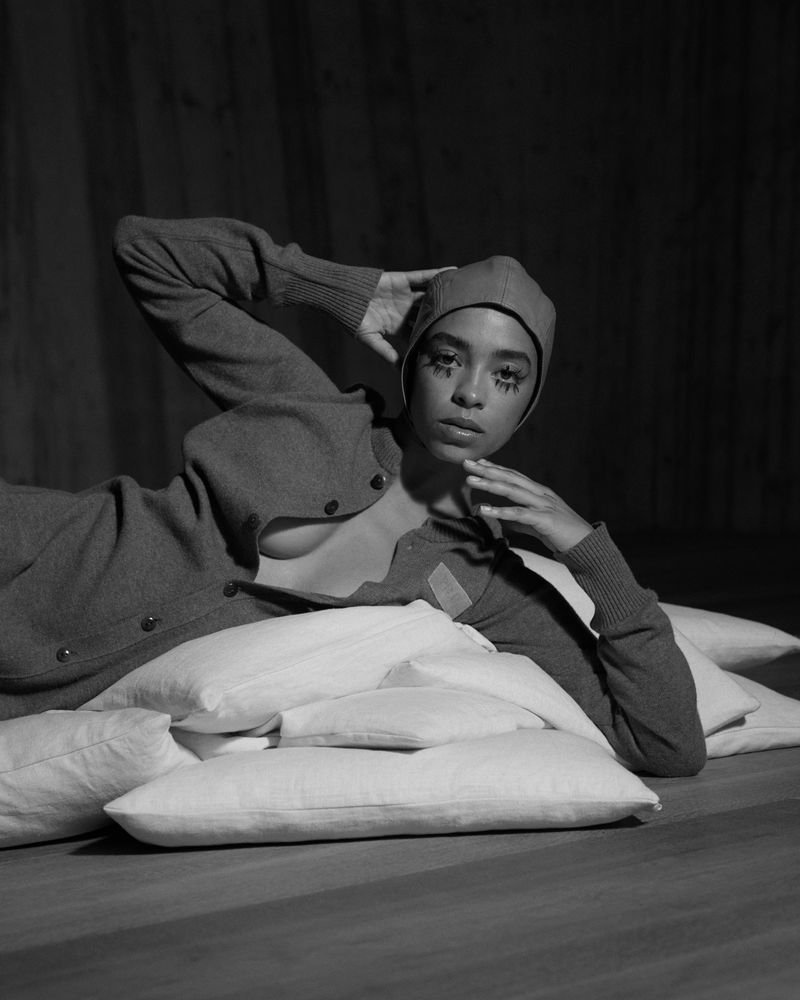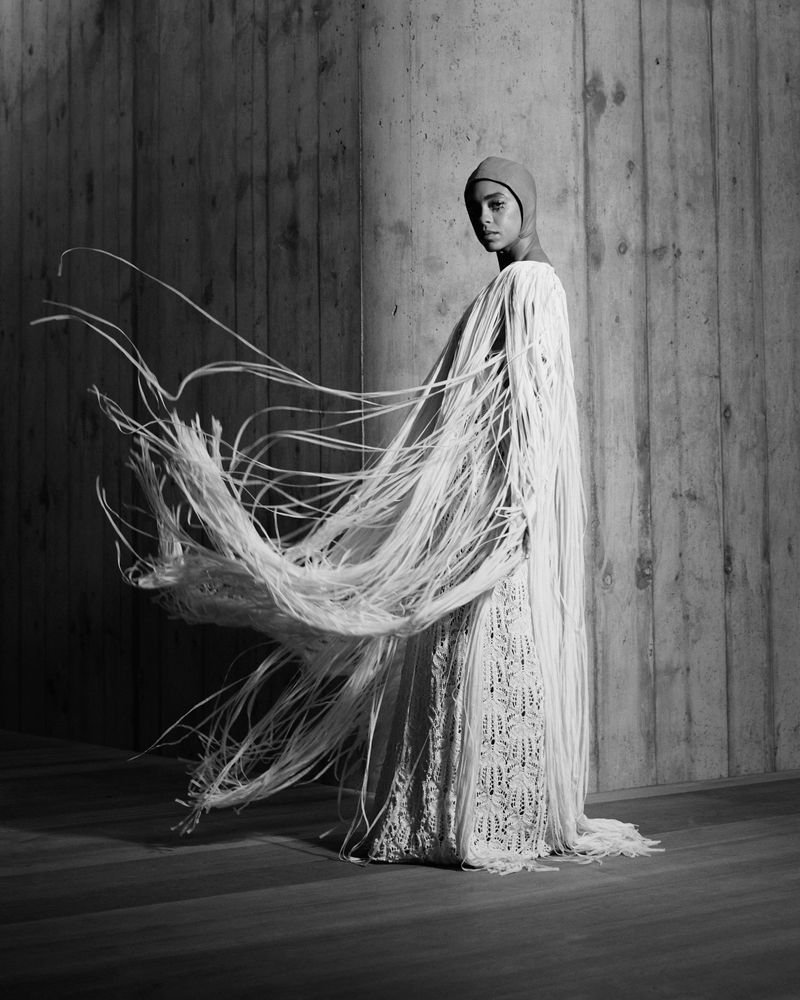
IWD ISSUE 06
The Instinct-Driven Soundworld of Kelsey Lu
In a time of constant noise and relentless productivity, Kelsey Lu offers an alternative: deep listening. Not just to music but to herself, to the world around her, and the subtle rhythms of personal transformation.
When we connect, Lu is in a moment of deliberate pause. Early 2025 has been intense, she explains, but not in the way most might interpret that word. For Lu, intensity is about depth, about careful excavation of both inner landscapes and artistic possibilities. Since returning to the States after some time in London, she’s navigating a complex personal moment with remarkable grace.
“I’ve been spending a lot of time alone,” she says. “It’s felt like a very slow, but necessarily slow start to the year.” She’s not resigning to this thought; she’s turning it into her strategy. Lu speaks about “radical rest” with the conviction of someone who understands that creativity isn’t about constant output but about renewal.
"The pedal that I’ve used the longest is the RC 30 loop pedal… it’s like another limb."
Her creative space is a testament to this philosophy, an open, light-filled sanctuary punctuated by green. Instruments are carefully arranged around the room, nestled among plants that breathe life into the white, airy environment. Her workspace becomes an extension of her musical process, organic, intentional and alive with possibility.
When Lu shares more about her artistic process, it sounds deeply intuitive, and when she’s composing for film, she doesn’t start with musical theory but with emotion. For recent scores like Earth Mama and Daughters, she discovered profound connections between the stories on screen and her own personal healing journeys. Motherhood, fatherwounds - these weren’t just narrative themes but lived experiences she was simultaneously processing. In Earth Mama, Lu’s cello lines weaved through scenes of maternal struggle and leaned into her explorations of generational healing.
Lu’s approach to composition sees her sitting with whatever instrument feels right in the moment. Sometimes her cello, sometimes piano, sometimes synthesisers. “I’m not thinking about exact chords,” she explains. “I’m thinking about emotion.” This sentiment extends to her broader artistic practice, which includes not just music but drawing, tarot, and extensive research when it comes to starting new projects or, at the time of our chat, her new album.
When asked further about how she conducts the research phase of a new project, Lu will delve into physical archives and spend time at The Kitchen in New York, one of the city’s oldest nonprofit spaces that shows work by emerging and established artists across multiple disciplines. She loves the tactile experience of flipping through books and finding unexpected images, creating connections. The walls in her studio space are covered with large sheets of paper, giving her the canvas to draw and create images that emerge alongside her musical ideas.

“Experimenting is everything. I love pushing organic sounds through effects until they become something completely unrecognisable but still somehow familiar.”
When we come to the subject of technology, it plays an interesting role in her creative process, but not a dominant one. Lu’s not wary of the AI hype on creatives; she's fascinated by how musical tools can transform her sound. Her beloved RC-30 loop pedal, she says, is “like another limb” - a tool that taught her about trust and listening. She speaks about manipulating recorded sounds through tape machines and effects pedals with the excitement of an explorer charting new territories. Yet, she’s quick to emphasise that these tools are extensions of her creativity, not replacements for it.
However, Lu’s most compelling attribute might be her commitment to community and authenticity. When discussing her online spaces and artistic expression, her advice is profoundly human: “The most important relationship to build is one with yourself.: She advocates for sacred personal spaces, for taking breaks, for understanding that your value isn’t measured in likes or followers. This philosophy hasn’t always been easy to maintain. “There were moments early in my careers,” Lu admits, “where I felt pressured to constantly produce, to always be ‘on.’ It took time to realise that my best work comes from periods of reflection and rest.”
Her vision for the composing world is expansive and inclusive. She wants to see more platforms for the trans community, more recognition for women of colour, and more diverse voices shaping musical narratives. “We’re all out there,” she says with quiet conviction. Lu’s collaborator, filmmaker Savanah Leaf, echoes this sentiment: “Working with Kelsey is like tapping into a wellspring of empathy. She brings not just her musical talent but her whole perspective on inclusivity and representation to every project.”
This commitment to broader representation stems from her understanding that art is fundamentally about connection. “Composing,” she reflects, “is about connecting, building, collaboration.” Even in its most solitary moments, her work reaches outwards, creating worlds beyond individual experience.
As our conversation winds down, Lu returns to a theme that seems to remain throughout the conversation, which is that of her entire artistic philosophy: intentionality. Whether discussing her recent spiritual retreat with artists like Meredith Monk, her approach to composition, or her navigation of challenging political moments, she emphasises conscious choice.

